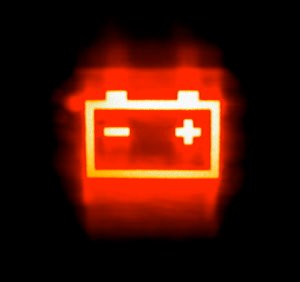How to take care of a car in summer: Maintenance Tips
Automobile mechanics recommends you to focus on 5 key areas of their cars to be prepared for high temperatures:
1. Cars need fluids during extreme heat
 Engine fluids are essential to keep a vehicle running smo othly. Most fluids not only lubricate, they also serve as coolants by helping carry heat away from critical components. When fluid levels are low, this cooling effect is reduced,and the possibility of overheating increases. Promptly have your vehicle inspected and repaired as necessary. Failure to do so could lead to additional repairs or an unplanned breakdown.
Engine fluids are essential to keep a vehicle running smo othly. Most fluids not only lubricate, they also serve as coolants by helping carry heat away from critical components. When fluid levels are low, this cooling effect is reduced,and the possibility of overheating increases. Promptly have your vehicle inspected and repaired as necessary. Failure to do so could lead to additional repairs or an unplanned breakdown.
2. Keep your engine cool
 Automobile engines work extra hard in the summer, and it is the cooling system’s job to protect the engine from overheating. In addition, additives in the coolant protect the radiator and internal engine components against wear and corrosion. Without proper cooling system maintenance, the odds of long term engine damage, and a summer time boil over, definitely increase. See the owner’s manual or maintenance booklet to determine the service interval appropriate for your vehicle.
Automobile engines work extra hard in the summer, and it is the cooling system’s job to protect the engine from overheating. In addition, additives in the coolant protect the radiator and internal engine components against wear and corrosion. Without proper cooling system maintenance, the odds of long term engine damage, and a summer time boil over, definitely increase. See the owner’s manual or maintenance booklet to determine the service interval appropriate for your vehicle.
CAUTION: Never remove the radiator cap when the engine is hot; boiling coolant under pressure could cause serious burns.
3. Cool passengers are happy passengers
 During extreme summer heat, a properly operating air conditioning system can be more than just a pleasant convenience. If a car’s air conditioning is not maintaining the interior temperature as well as it did in the past, it may mean the refrigerant level is low or there is another problem. Have the air conditioning system checked by a experienced & well known technician.
During extreme summer heat, a properly operating air conditioning system can be more than just a pleasant convenience. If a car’s air conditioning is not maintaining the interior temperature as well as it did in the past, it may mean the refrigerant level is low or there is another problem. Have the air conditioning system checked by a experienced & well known technician.
4. Heat can destroy the life of a car battery
 Most of the people think battery problems occur primarily in winter, but summer heat can negatively impact a car’s battery even more than winter. Heat and vibration are a battery’s two worst enemies leading to internal breakdown and eventual failure. Another potential summer problem is faster evaporation of the battery fluid, leading to corrosion on terminals and connections. Clean any corrosive build-up from the battery terminals and cable clamps, and ensure the clamps are tight enough so they will not move.
Most of the people think battery problems occur primarily in winter, but summer heat can negatively impact a car’s battery even more than winter. Heat and vibration are a battery’s two worst enemies leading to internal breakdown and eventual failure. Another potential summer problem is faster evaporation of the battery fluid, leading to corrosion on terminals and connections. Clean any corrosive build-up from the battery terminals and cable clamps, and ensure the clamps are tight enough so they will not move.
NOTE: If a car’s battery is more than three years old, it’s a good idea to have it tested by a trained technician to determine how much longer it will last.
5. Avoid excessive heat where the rubber meets the road
 Driving on under-inflated tires not only affects the handling and braking of a vehicle, it can also cause tires to overheat and increase the likelihood of a blowout. This problem becomes even more of a concern when road temperatures are extremely high. While checking the tire pressures—including the spare—drivers should also inspect the tire treads for adequate depth and any signs of uneven wear that might indicate a suspension or alignment problem.
Driving on under-inflated tires not only affects the handling and braking of a vehicle, it can also cause tires to overheat and increase the likelihood of a blowout. This problem becomes even more of a concern when road temperatures are extremely high. While checking the tire pressures—including the spare—drivers should also inspect the tire treads for adequate depth and any signs of uneven wear that might indicate a suspension or alignment problem.
Source: http://ww1.texas.aaa.com/en-tx/buy-maintain-vehicles/vehicle-maintenance/Pages/car-care-tips.aspx
